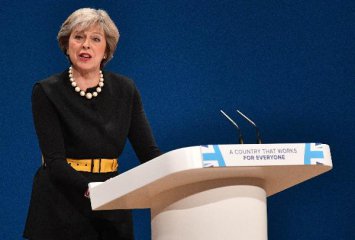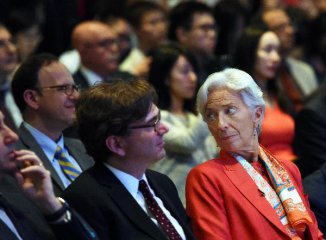
British economy will weather the effects of uncertainty over Brexit this year, but will suffer a downturn in 2017, according to a UK think tank report issued on Monday.
The EY ITEM Club report says the economy "has not fallen off a cliff since the Brexit vote," and commentators have been suggesting that this shows fears about the UK leaving the EU were "overstated."
The Brexit vote on June 23 was predicted by many analysts to lead to economic turmoil. However, sentiment reports from business and reports of retail activity have shown little adverse effect recently.
But the report warns it is still too early to celebrate the Brexit success, as data from both the post-referendum and the annual Autumn Statement on economic policy expected next month still need to be analyzed.
So the prevailing mood at this moment, according to the report, is still one of "wait and see." But an economic downturn has been forecast by some, including Peter Spencer, chief economic adviser at EY ITEM Club, who said domestic demand would slow "dramatically" next year, leaving the UK "totally dependent upon exports for growth." He forecast GDP growth to slow from 1.9 percent this year to 0.9 percent next year before picking up to 1.5 percent in 2018.
"Brexit is going to take its toll of this economy," said Spencer.
He also warned that real problems could occur in exchange rates. "The consumer market is strong, the labor market is strong but the real problem is that low pound -- which is going to mean higher inflation next year which is going to squeeze the consumer," said Spencer.
The pound has fallen against foreign currencies, notably the euro and the U.S. dollar. It now stands at 1.22 U.S. dollars.
The EY ITEM Club report holds a similar view towards the adverse effects of the low pound, saying the low pound will feed through to inflation with the current 0.6 percent consumer price index (CPI) rate, a key gauge of retail inflation, rising to 2.6 percent next year.
Employment growth is slowing, wages are not rising as fast as previously expected and factory gate inflation is increasing and this will hit consumer prices next year, the report added. As a result, consumer spending growth is forecast to fall to 0.5 percent in 2017, down from 2.5 percent in 2015.
"While the EY ITEM Club has been advising of a gradual slowdown in consumer spending for some time, the move towards Brexit has accelerated the expected rate of that slowdown," said the report.





















Latest comments